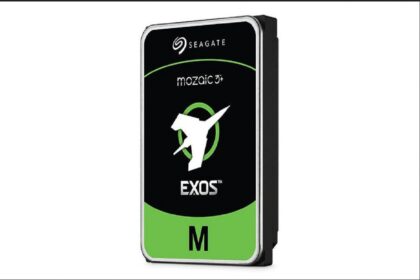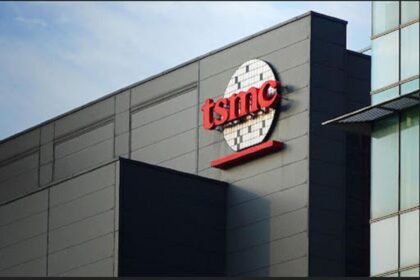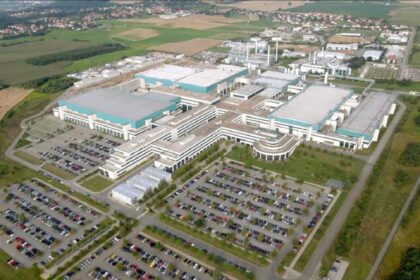The Netherlands has inaugurated the ChipNL Competence Centre, a key initiative designed to foster semiconductor innovation. This facility, which will receive €12 million in funding from the European Commission and the Dutch Ministry of Economic Affairs, aims to boost Europe’s position in the global semiconductor race. The project, a part of the broader EU Chips Act, will focus on advancing collaboration, innovation, and talent development in semiconductor technology.
The Role of ChipNL Competence Centre in Semiconductor Innovation
As part of the European Commission’s initiative to develop technical expertise across the continent, the ChipNL Competence Centre will serve as a crucial hub for businesses, particularly small and medium-sized enterprises (SMEs) and startups. The centre will provide vital resources for organizations working in semiconductor technologies, including training, infrastructure access, and support for developing cutting-edge solutions. By bringing together various stakeholders in the Dutch semiconductor ecosystem, ChipNL aims to create a collaborative environment that drives innovation.
Funding and Strategic Importance of the ChipNL Competence Centre
The opening of the ChipNL Competence Centre is a significant step in the European Union’s broader semiconductor strategy. The centre will operate under the framework of the EU Chips Act, which seeks to increase Europe’s share of global semiconductor production and reduce reliance on foreign suppliers. The €12 million in funding reflects the strategic importance of this initiative, as Europe looks to enhance its semiconductor capabilities in the face of growing global competition.
In total, the European Commission has announced plans to establish 27 Chips Competence Centres across 24 Member States and Norway. These centers will receive over €170 million in funding, aimed at accelerating Europe’s technological leadership in semiconductor production, design, and innovation.
Key Collaborators and Stakeholders
The ChipNL Competence Centre is a joint venture involving several prominent organizations. Key players include Brainport Development, Chiptech Twente, High Tech NL, TNO, Jeppix, and Imec. Additionally, the regional development companies Oost NL, BOM, and Innovationquarter play an integral role in supporting the project. This collaboration ensures that the center will have access to a broad network of expertise and resources, further strengthening its impact on the Dutch semiconductor industry.
Focus Areas of the ChipNL Competence Centre
The ChipNL Competence Centre will focus on several critical areas within the semiconductor sector:
- Chip Design and Development: Supporting businesses in chip design and providing access to cutting-edge tools and resources.
- Semiconductor Production Equipment: Facilitating access to advanced production equipment for both established players and emerging companies.
- Quantum Technology: Promoting research and development in the growing field of quantum computing, which relies heavily on semiconductors.
By concentrating on these areas, the ChipNL Competence Centre aims to accelerate the development of next-generation semiconductor technologies and provide Dutch businesses with the tools they need to compete globally.
Implications for Dutch SMEs, Startups, and Scale-ups
One of the core objectives of the ChipNL Competence Centre is to support Dutch semiconductor SMEs, startups, and scale-ups. These companies often face challenges related to access to resources, technical expertise, and market entry. The centre will bridge this gap by offering tailored support, helping organizations navigate the complexities of the semiconductor market. Furthermore, by offering access to pilot lines, design platforms, and large-scale infrastructure, the ChipNL Competence Centre will provide smaller businesses with opportunities to scale their operations and engage in global markets.
The EU Chips Act and Its Impact on the Semiconductor Industry
The EU Chips Act, launched in 2022, is designed to strengthen Europe’s semiconductor industry by increasing production capacity, developing new technologies, and fostering innovation. The Chips Competence Centres, including ChipNL, are central to this initiative, providing a framework for knowledge sharing, research, and development across the semiconductor value chain. As part of the EU’s goal to increase semiconductor production in Europe, the Chips Act aims to ensure that European companies can meet their technological needs without relying on non-EU suppliers.
Future Plans for Expansion and Collaboration
Looking ahead, the European Commission plans to expand the Chips Competence Centres network further. In early 2025, a second call for proposals will be launched to establish additional centers, further enhancing Europe’s technological capabilities. The European Commission’s long-term goal is to create a robust semiconductor ecosystem that supports a wide range of industries, from telecommunications and automotive to artificial intelligence and quantum computing.
Conclusion: Strengthening Europe’s Semiconductor Ecosystem
The opening of the ChipNL Competence Centre marks a critical step in bolstering Europe’s semiconductor innovation. With a focus on collaboration, talent development, and access to state-of-the-art infrastructure, the centre will play a pivotal role in positioning the Netherlands and Europe as global leaders in semiconductor technology. Through initiatives like these, Europe is working to secure its technological future and reduce its dependence on external semiconductor sources, ensuring that it remains competitive on the world stage.
FAQ: Common Questions About the ChipNL Competence Centre
1. What is the ChipNL Competence Centre?
The ChipNL Competence Centre is a new facility in the Netherlands designed to foster semiconductor innovation, providing resources, training, and infrastructure for startups and SMEs in the semiconductor sector.
2. How is the ChipNL Competence Centre funded?
The centre received €12 million in funding from the European Commission and the Dutch Ministry of Economic Affairs, as part of the EU’s Chips Act initiative.
3. Who are the key stakeholders involved in ChipNL?
The key stakeholders include Brainport Development, Chiptech Twente, High Tech NL, TNO, Jeppix, and Imec, as well as regional development companies like Oost NL, BOM, and Innovationquarter.
4. How does the ChipNL Competence Centre support semiconductor startups?
ChipNL provides access to advanced tools, resources, and infrastructure, helping startups with chip design, production equipment, and quantum technology development.
5. What is the EU Chips Act, and how does it relate to ChipNL?
The EU Chips Act is a European Commission initiative to increase semiconductor production in Europe. The ChipNL Competence Centre is one of the 27 centers being established across Europe to support this goal.

















